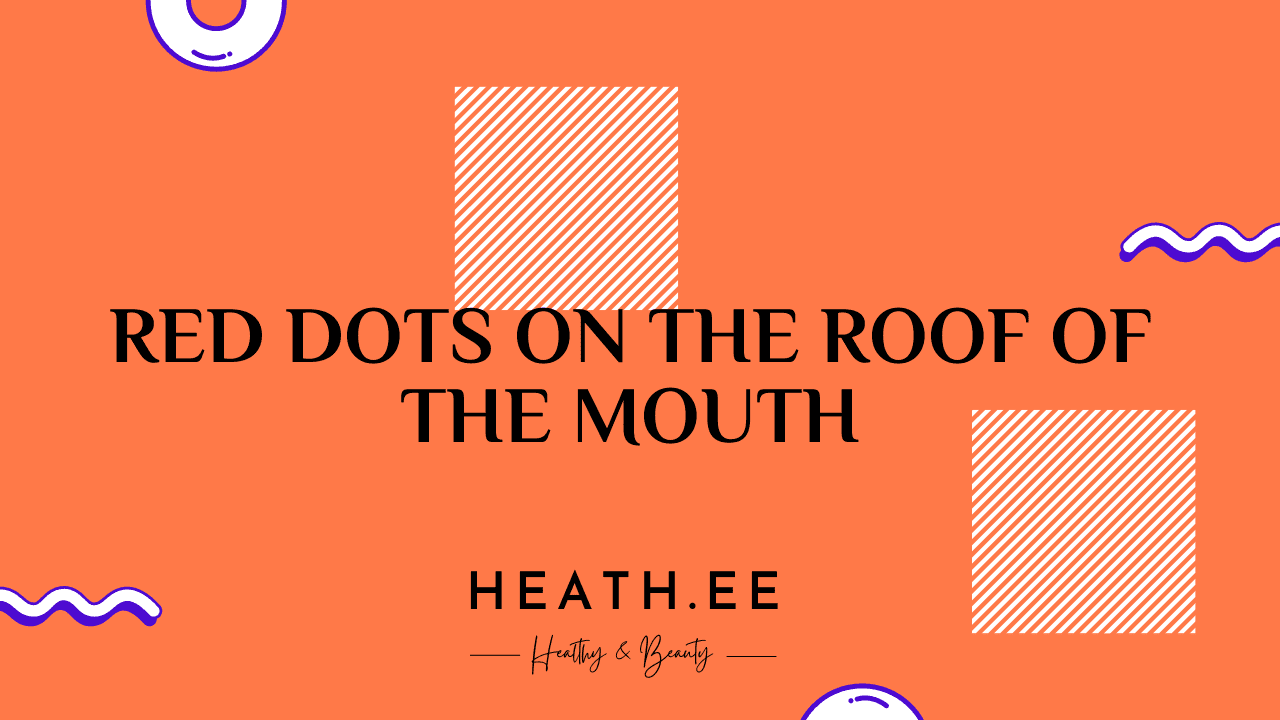When it comes to oral health, there are many different conditions that can cause discomfort, pain, and even embarrassment. One of these conditions is red dots on the roof of your mouth. If you’ve ever experienced this, you know how uncomfortable it can be. In this blog post, we’ll explore what red dots on the roof of your mouth are, what causes them, and how to treat them.
What are Red Dots on the Roof of Your Mouth?
Red dots on the roof of your mouth, also known as “palatal petechiae”, are small red or purple spots that can appear on the roof of your mouth. They are usually painless, but can be uncomfortable or even embarrassing. While they are usually harmless, they can sometimes be a sign of a more serious underlying condition.

What Causes Red Dots on the Roof of Your Mouth?
Red dots on the roof of your mouth can be caused by a variety of conditions. The most common cause is trauma or injury to the mouth, such as biting your tongue or cheek, or using a toothpick too vigorously. They can also be caused by certain medications, such as blood thinners or antibiotics. In rare cases, red dots on the roof of your mouth can be caused by an underlying medical condition, such as an infection, a vitamin deficiency, or an immune disorder.
How to Treat Red Dots on the Roof of Your Mouth
If the red dots on the roof of your mouth are caused by trauma or injury, they should heal on their own within a few days. However, if they are caused by a medical condition, you should see your doctor for treatment. Depending on the underlying cause, your doctor may prescribe antibiotics or other medications to treat the condition. In some cases, dietary changes may be necessary to help treat the condition.

When to See a Doctor
If the red dots on the roof of your mouth don’t go away within a few days, or if they are accompanied by other symptoms such as fever, swelling, or pain, you should see your doctor. You should also see your doctor if the red dots are accompanied by other signs of an underlying medical condition, such as fatigue, weight loss, or difficulty breathing.
Home Remedies for Red Dots on the Roof of Your Mouth
If the red dots on the roof of your mouth are caused by trauma or injury, there are a few things you can do at home to help relieve discomfort and promote healing. You can try rinsing your mouth with warm salt water several times a day to help reduce inflammation and promote healing. You can also try using an over-the-counter pain reliever such as ibuprofen or acetaminophen to help relieve pain and discomfort.
Prevention of Red Dots on the Roof of Your Mouth
The best way to prevent red dots on the roof of your mouth is to practice good oral hygiene. Brush your teeth twice a day with a soft-bristled toothbrush and floss daily. Avoid using toothpicks or other sharp objects in your mouth, and avoid biting your tongue or cheeks. If you are taking any medications that can cause red dots on the roof of your mouth, talk to your doctor about alternatives.
When to See a Dentist
If the red dots on the roof of your mouth don’t go away after a few days, or if they are accompanied by other symptoms, you should see your dentist. Your dentist can examine your mouth and help determine the underlying cause and provide treatment.
Red Dots on the Roof of Your Mouth – The Bottom Line
Red dots on the roof of your mouth can be caused by trauma or injury, certain medications, or an underlying medical condition. If you experience red dots on the roof of your mouth, you should see your doctor or dentist to determine the underlying cause and get treatment. You can also try some home remedies to help relieve discomfort and promote healing.
At the end of the day, it’s important to practice good oral hygiene and seek medical attention if you experience any symptoms that don’t go away. Taking care of your oral health is an important part of overall health and wellbeing.



